EPAS Diversity Conference 2023
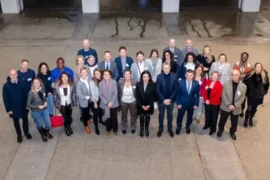
The Enlarged Partial Agreement on Sport (EPAS) of the Council of Europe (COE), in cooperation with the Ministry of Foreign Affairs, Education and Sport of the Principality of Liechtenstein within the framework of the Liechtenstein Presidency of the Committee of Ministers, organised the EPAS Diversity Conference on the topic of Inclusion of Child Migrants and Refugees in and through Sport on November 28 and 29 in Schaan, Liechtenstein.
As indicated in the title of the conference, the focus of the event was on the inclusion of children and youth migrants, refugees and asylum seekers in and through sport. The event was kicked off with a series of workshops, on November 28, introduced by Irena Guidikova, Head of the Children's Rights and Sport Values Department at the COE, and facilitated by Cassandra Mactavish, Senior Project Officer at EPAS at the COE.
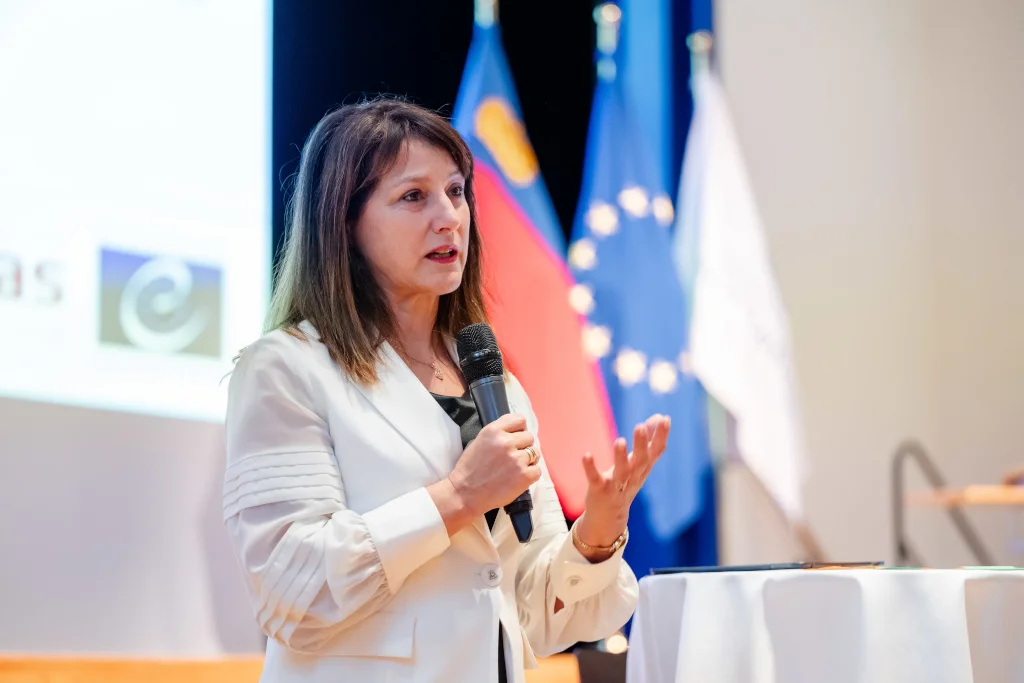
The first workshop explored the key challenges to the inclusion of child migrants and refugees in and through sport. Background information and introduction to the topic was given by Nick Sore, Senior Refugee Sports Coordinator at United Nations High Commissioner for Refugees (UNHCR). Guiding principles and challenges from the field were shared, alongside some tools and resources available.
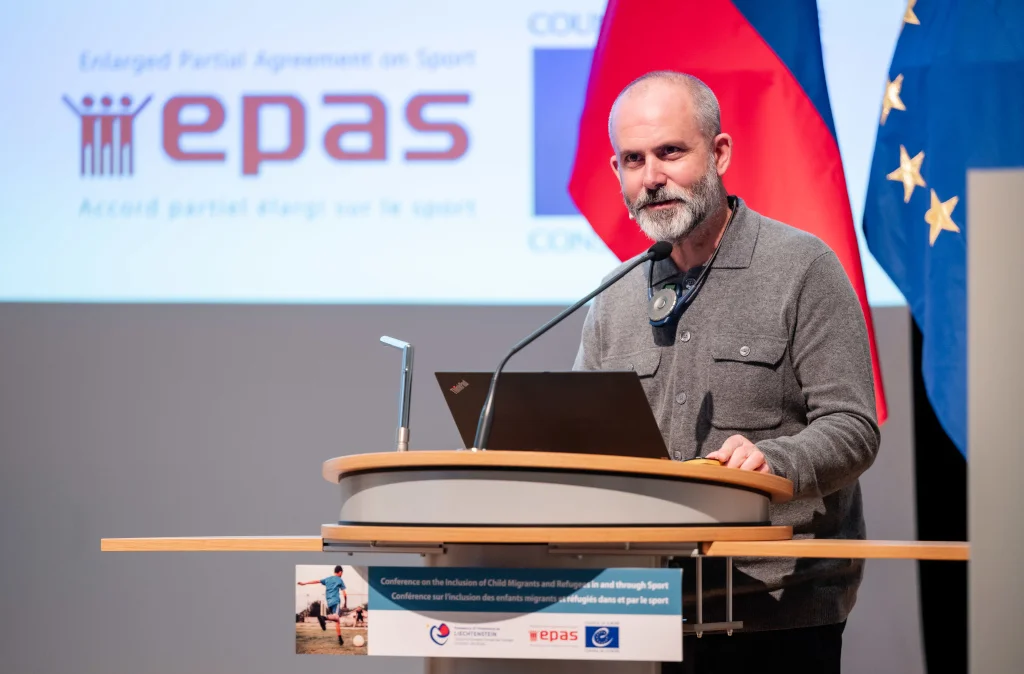
Moderated by Mogens Kirkeby, Vice-Chair of the EPAS Consultative Committee and President of the International Sports and Culture Association (ISCA), the participants explored in smaller working groups the causes and roots of the problems, identifying the main problems and challenges in the field.
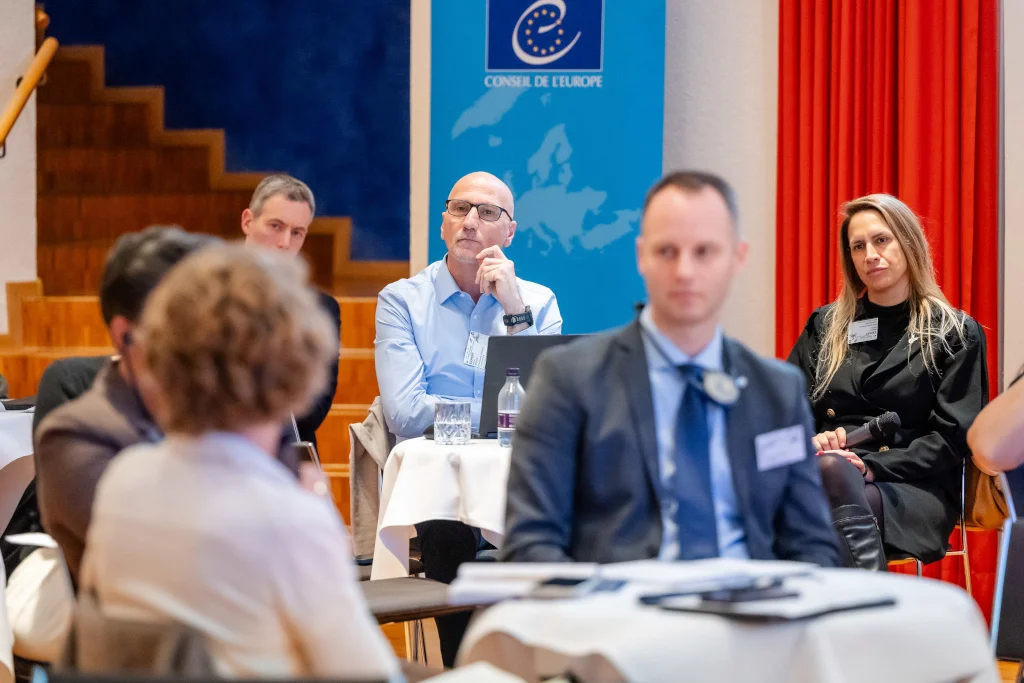
The second workshop focused on the existing good practices and initiatives. Guido Battaglia, Head of Outreach and Policy at the Centre for Sport and Human Rights moderated the session, where participants explored in smaller working groups the possible solutions to the problems, identified in the first part.
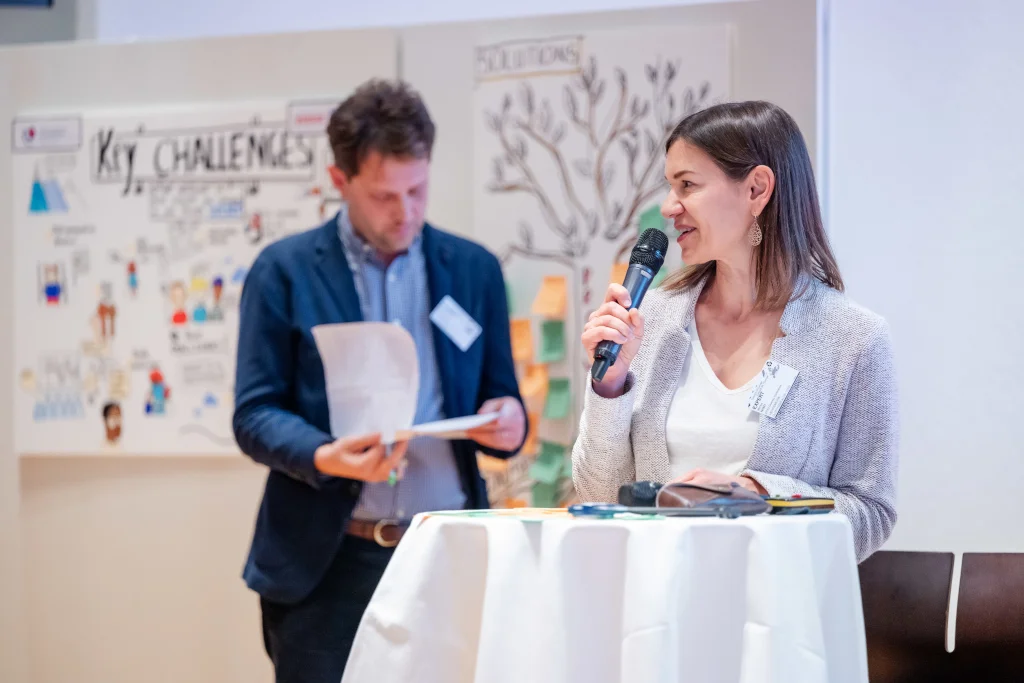
Monica Namy, Social and Environmental Sustainability Manager at the Union of European Football Associations (UEFA) introduced their activities, opportunities and projects being implemented; sharing the successes and challenges of the campaigns and actions taken.
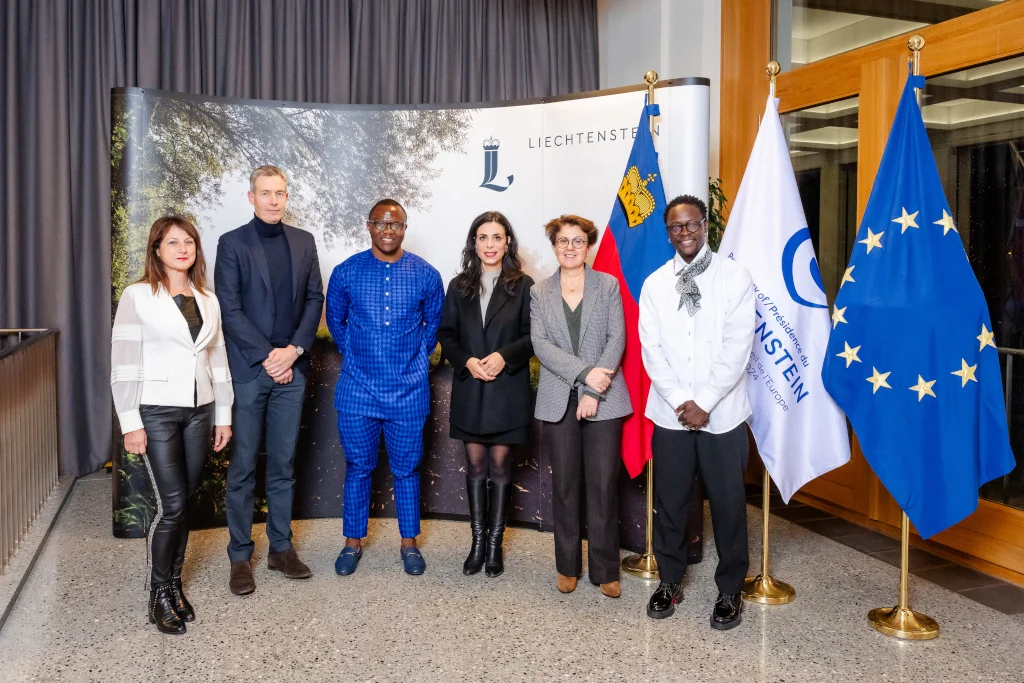
After the conclusions from the workshops and call to action by the moderators, Irena Guidikova wrapped up the workhop day and created a bridge to the conference day to come. Participants were then invited to a dinner reception, welcomed by Dominique Hasler, Minister of Foreign Affairs, Education and Sport, Principality of Liechtenstein; Alexandre Husting, Chair of the EPAS Governing Board at the COE; and Leyla Kayacik, Special Representative of the Secretary General on Migration and Refugees at the COE.
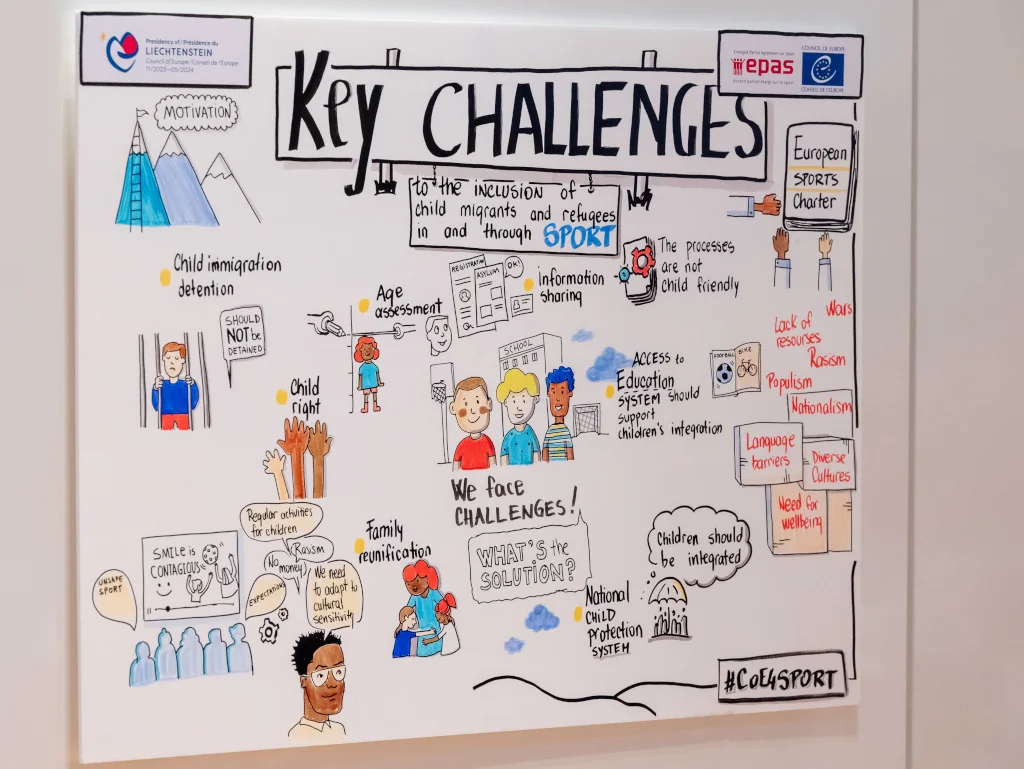
The first day concluded by a special screening of the touching documentary film “We dare to dream,” with video address by film director Waad El Kateab and participation of one of the refugee athletes and Olympians featured in the film.
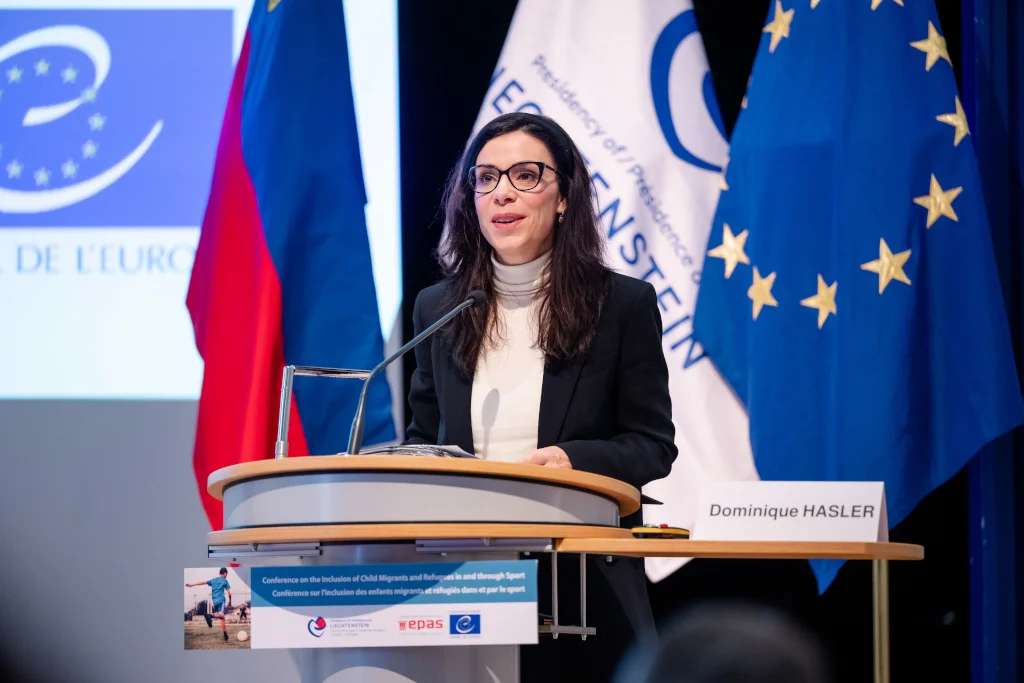
The second day was devoted to plenary sessions, and was opened by Dominique Hasler, Minister of Foreign Affairs, Education and Sport, Principality of Liechtenstein; Marja Ruotanen, Director General of Democracy and Human Dignity of the COE (via video address) and Alexandre Husting, Chair of the EPAS Governing Board of the COE.
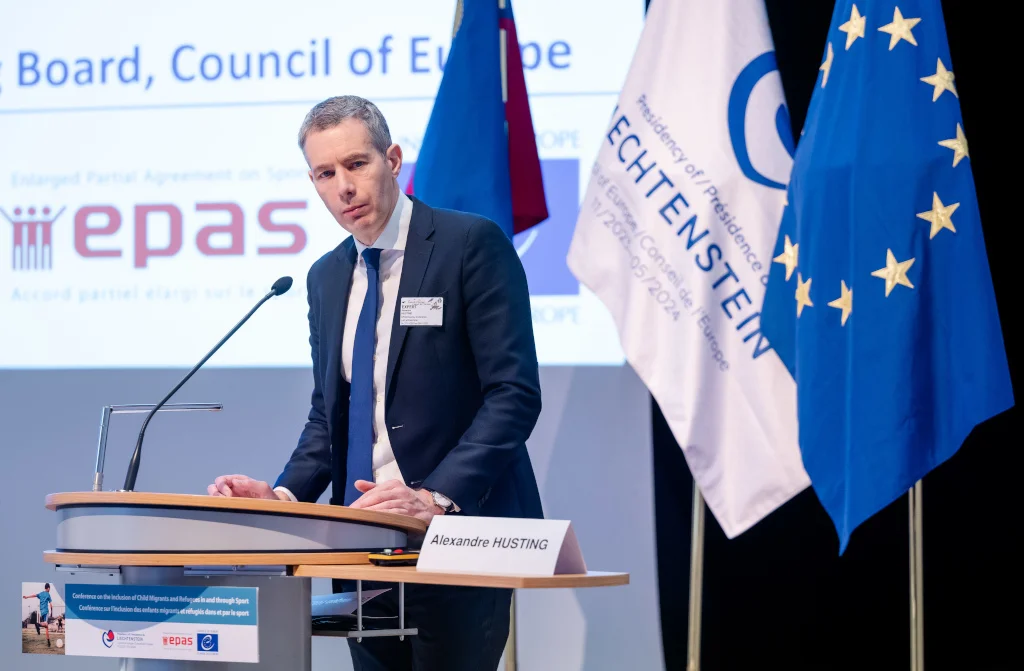
Council of Europe’s Leyla Kayacik, Special Representative of the Secretary General on Migration and Refugees, and Irena Guidikova, Head of the Children's Rights and Sport Values Department set the scene by sharing the policy position of COE, as well as resources and concrete actions taken in providing member countries assistance and guidance in the field of migrants, refugees and asylum seekers, through different lenses.
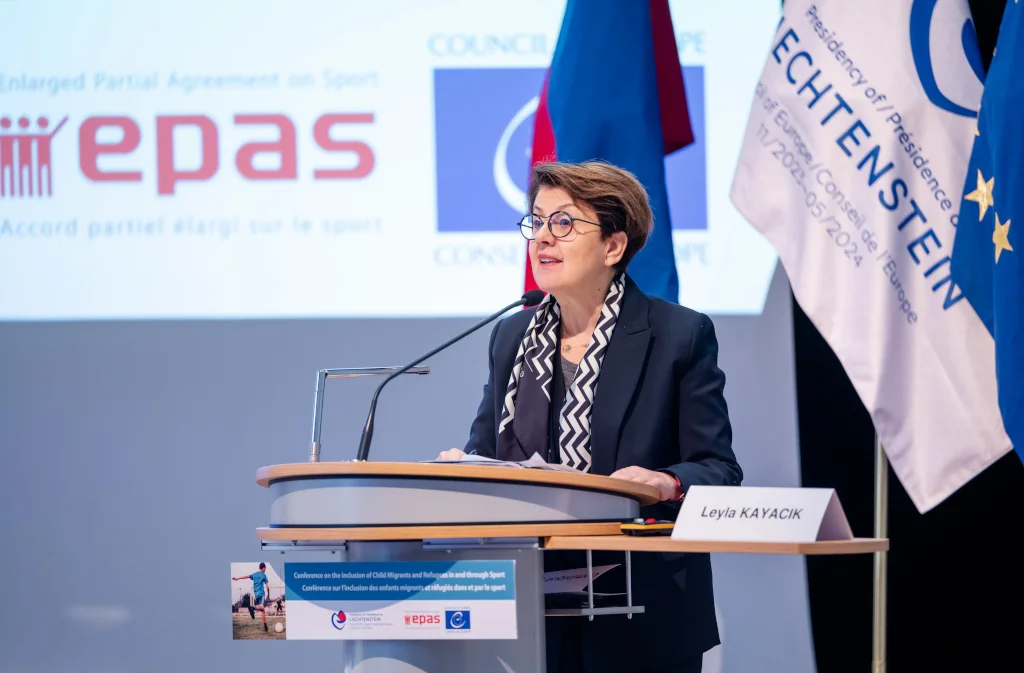
In the first panel, moderated by Patricia Campos Domenech, the participants heard the video contribution by Khalida Popal, founder and director of Girl Power Organization, the Programme and Event Director of the Afghanistan Women's National Football Team; as well as and testimonials by Cyrille Tchatchet II, Olympic Athlete and Gerald Mballe, Advisor at the Special Olympics Europe Eurasia. Through their personal experiences and engagements, the focus of the narrative was given to the migrant and refugees from their perspective.
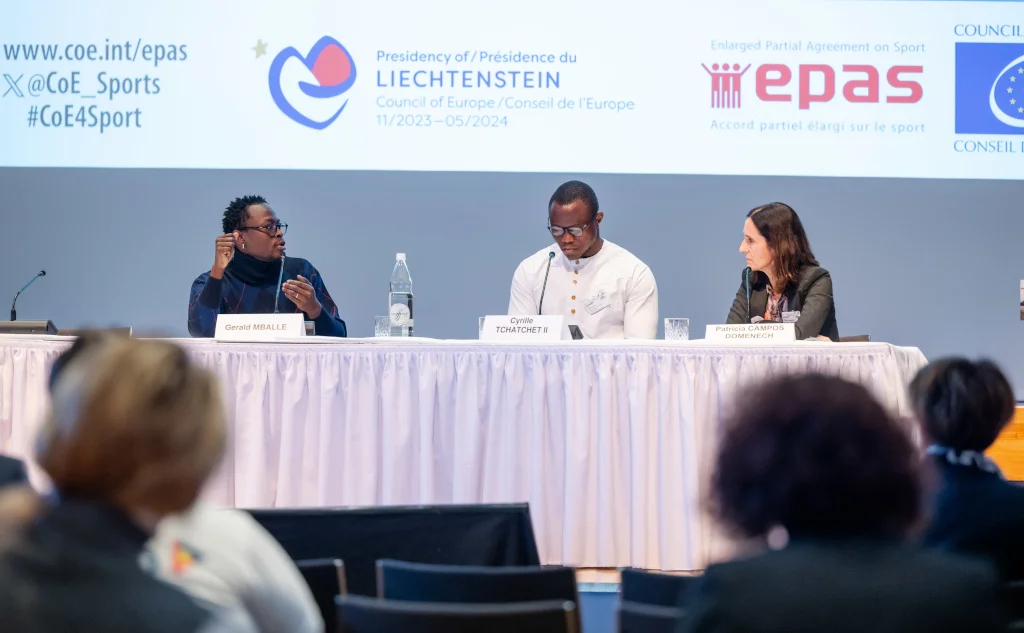
The second panel focused on the role of sport for child migrants and refugees, and more specifically how sport can be used as a tool for inclusion. Moderated by Charlotte Girard Fabre, Chair of the EPAS Consultative Committee and Secretary General of the International Federation for Sports Officials (IFSO), the panellists shared experienced through the work of their organisations and institutions. Michelle Mills, Sport for Development Programme at United Nations Children's Fund (UNICEF), Jeroen Carrin, Head of programmes at the Olympic Refuge Foundation; Anne Meaux, Pedagogy and Social Innovation Coordinator at Play International; and Katerina Salta, Founder of Hestia FC Greece and Project Coordinator at ISCA contributed by sharing their experiences and good practices.
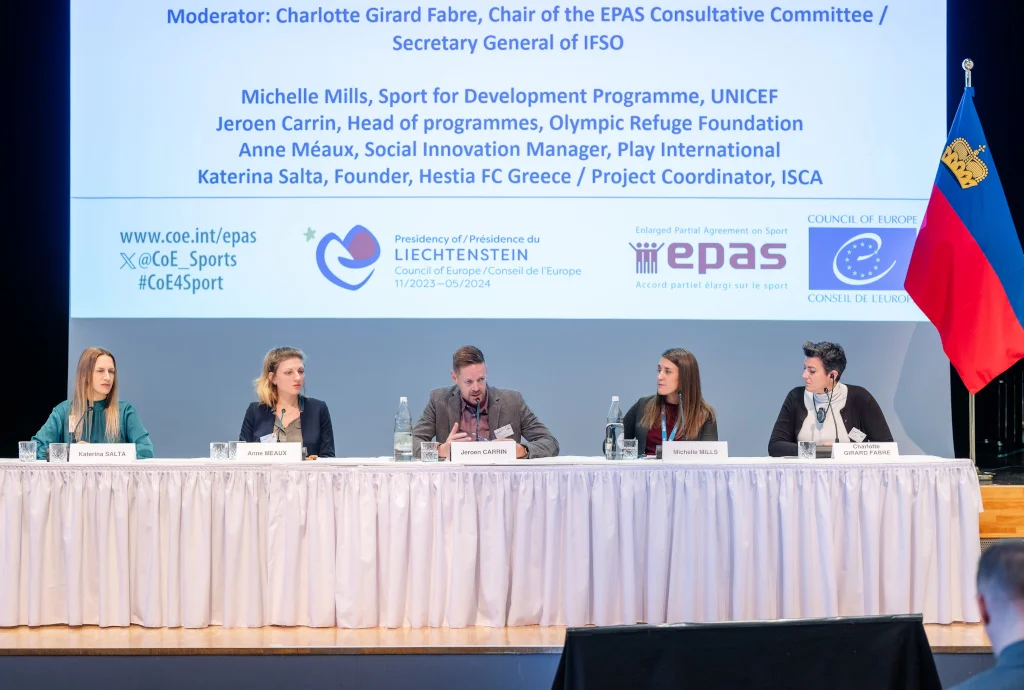
The last panel discussion was moderated by Diana Santos, Advisor to the Secretary of State For Youth And Sport in Portugal, and the topic was focused on the current activities and concrete action plans. Nigar Arpadarai, Member and Rapporteur of the Committee on Migration, Refugees and Displaced Persons, Parliamentary Assembly of the Council of Europe joined remotely, with in-person contributions by Nick Sore, Senior Refugee Sports Coordinator at UNHCR, Tanya Rutti, Co-CEO of the Scort Foundation and Patricia Campos Domenech, media representative and initiator of Goals of Freedom shared their activities and plans.
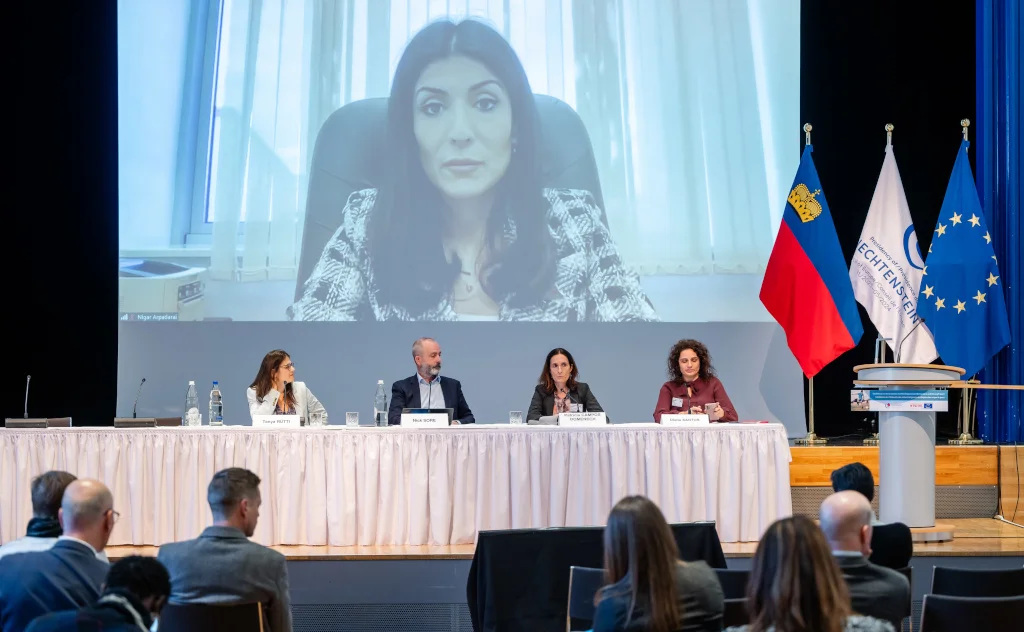
The conference closed in a constructive way, with key important messages and commitments of the participants and stakeholders to enable safe sport to all communities, with active engagement of the migrants, refugees and asylum seekers, as well as local communities in all stages; as well as use sport as a tool for integration, inclusion and social cohesion.
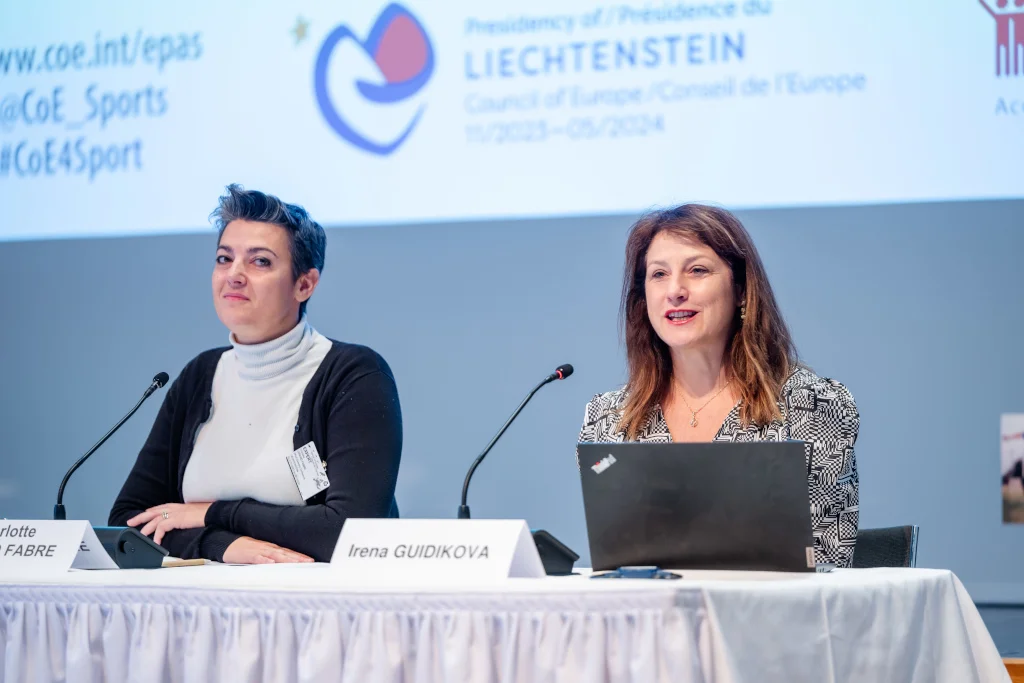
The conference was also an opportunity for the meeting of the Bureau members of the Consultative Committee of EPAS, where the European University Sports Association (EUSA) is represented by Andrej Pisl.
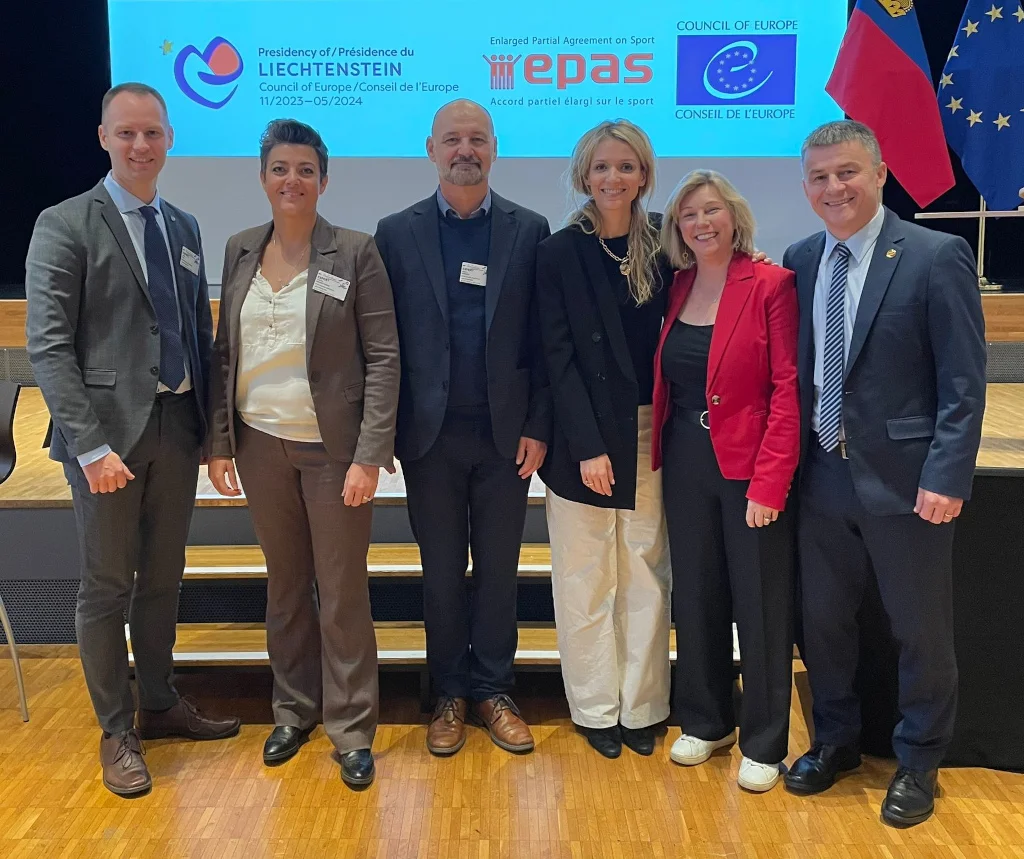
For more information about the event, including background information, speakers' biographies and video recording of the main part of the conference, please see https://www.coe.int/en/web/sport/diversity-conference-2023
